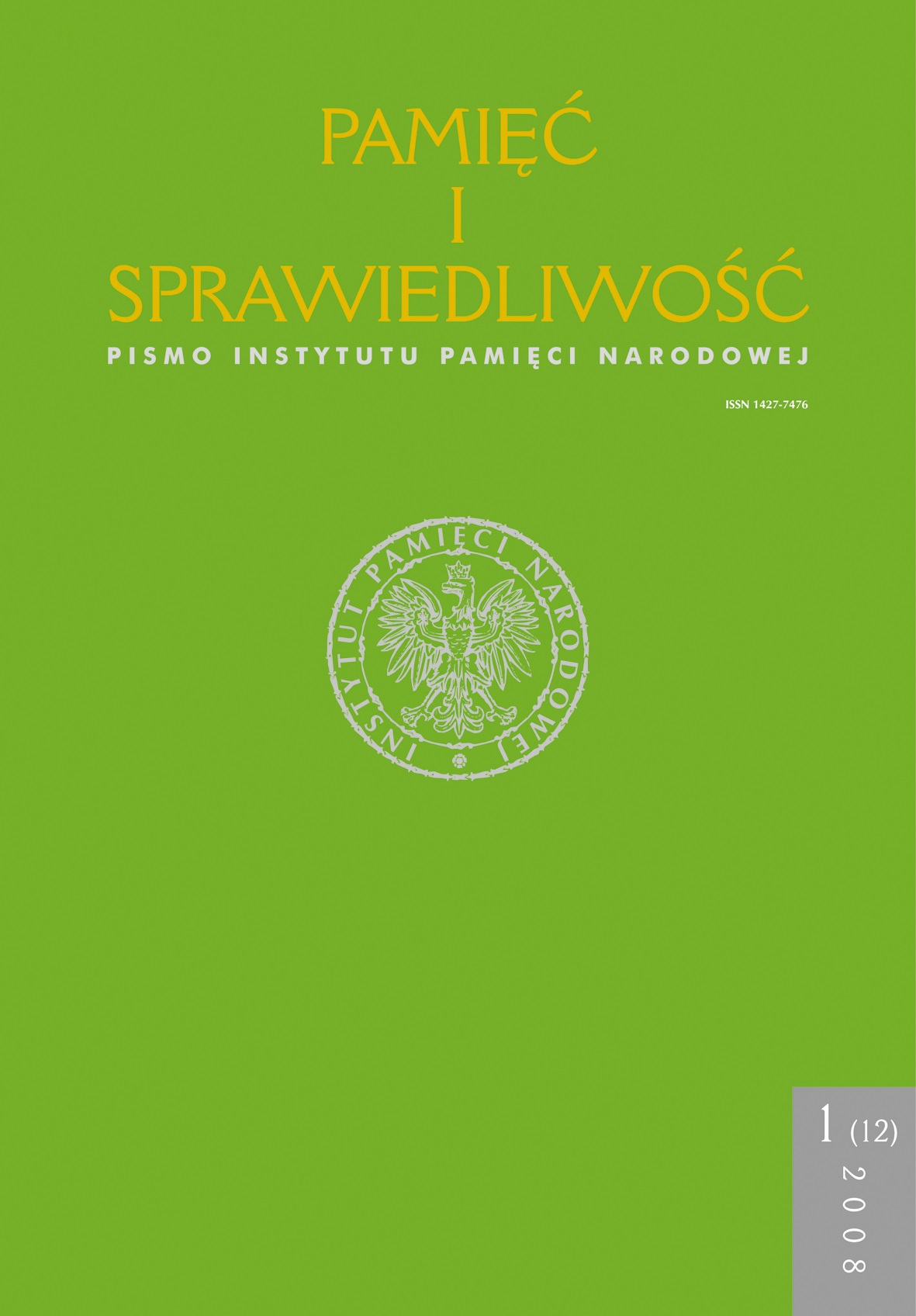Przestępstwa polityczne w orzecznictwie Komisji Specjalnej do Walki z Nadużyciami i Szkodnictwem Gospodarczym 1950–1954
Pamięć i Sprawiedliwość, Bd. 12 Nr. 1 (2008), pages: 321-343
Publication date: 2008-06-30
Abstract
The Special Commission for the Fight against Abuse of the Law and Harmful Economic Activity (Komisja Specjalna do Walki z Nadużyciami i Szkodnictwem Gospodarczym), in short called the Special Commission, existed from 1945 to 1954. It was a specifi c body of the judiciary in the Polish penal sytem. It could imprison people – send them to labour camps for the period of maximum 2 years – or could impose fi nes. Under its decisions, as that was the name of the judgments given by this unit, over 84 000 persons landed in labour camps, and over 200 000 were penalized with a fi ne. If we include people who were unlawfully arrested and released without determining whether they were guilty or innocent or people taken into custody, the number of people affected by the operation of the Special Commission would exceed 100 000.
The Special Commission under the vested powers prosecuted the so-called economic crimes – including hiding goods, refusal to sell goods, collecting excessive prices, speculation, usury, foreign currency trading, illegal slaughter of animals for meat and trading such meat, illegal grinding, illegal tanning and sale of leather, smuggling, chain sale, illegal manufacturing of alcohol, selling alcohol and cigarettes. It also had jurisdiction over other crimes: insulting state officers, forging documents, crossing borders illegally, sabotage, botchery, as well as the deeds which were not considered crimes that is to say: aversion to work, loitering, gambling or soliciting.
From the fourth quarter of 1950 the Special Commission was authorized to prosecute a new crime: ‘causing panic in order to harm the interest of the working masses’, that is whispered propaganda. That way the Commission became the tool of the Polish People’s Republic used for combating the opponents of the political regime. The victims of the Commission were usually ‘common’ people expressing their opinions or observations on various topics, teddy boys, ‘political
hooligans’, joke tellers, persons abusing alcohol, criticizing social, political and economic situation, and listening to Polish radio stations broadcasting from capitalist countries.
The article presents the judicial decisions of the Special Commission first and foremost on the whispered propaganda. Selected examples illustrate the mechanism of penalizing. The detailed analysis of the activities of the Commission has enabled to show its role and place in the Polish political system and judiciary.
 Język Polski
Język Polski
 English
English
 Deutsch
Deutsch
 Français (France)
Français (France)
 Italiano
Italiano
 Русский
Русский


 PDF (Język Polski)
PDF (Język Polski)
